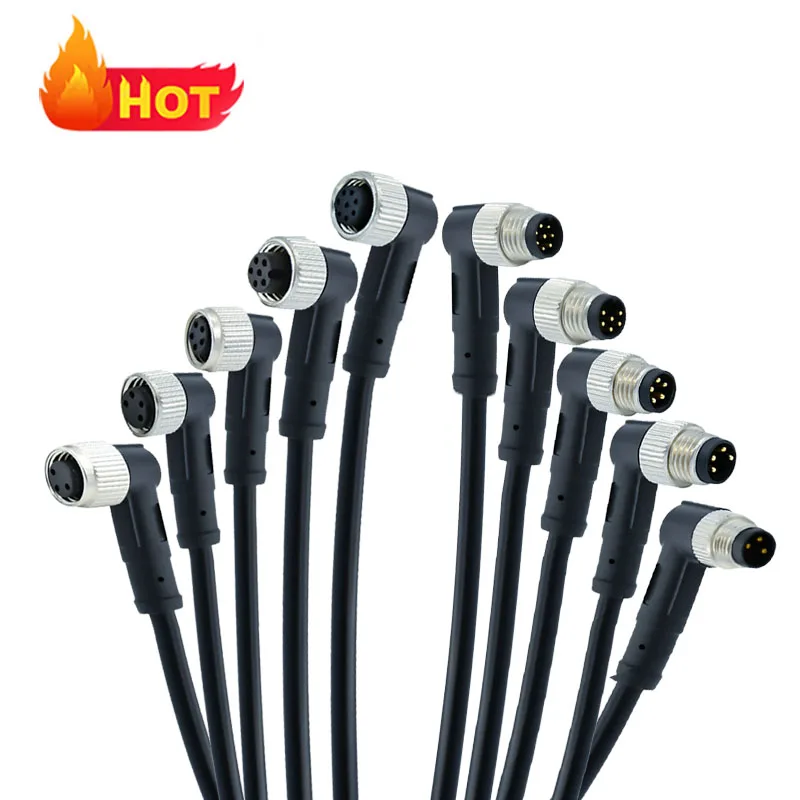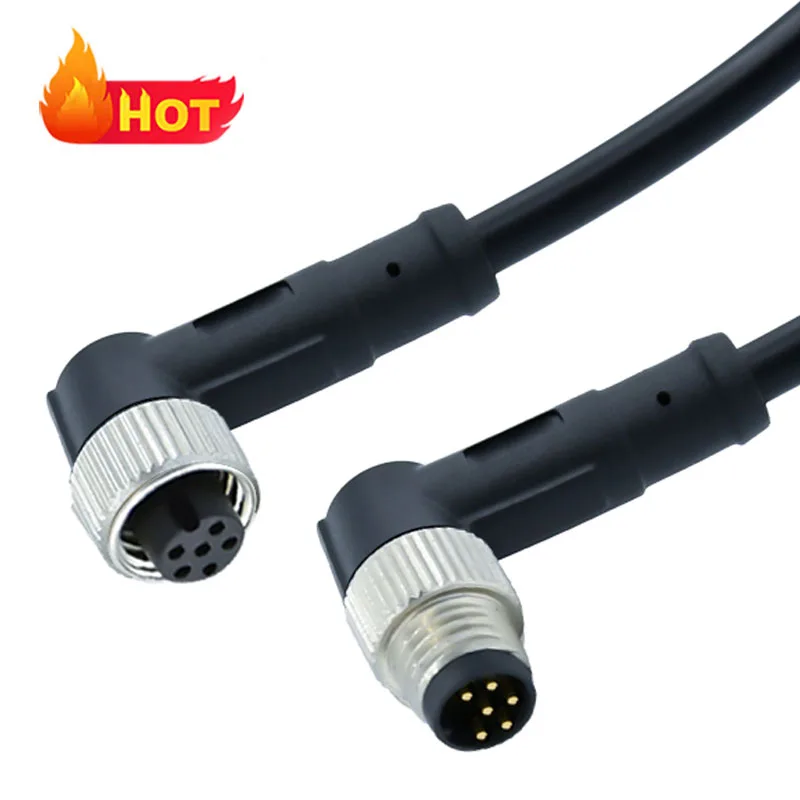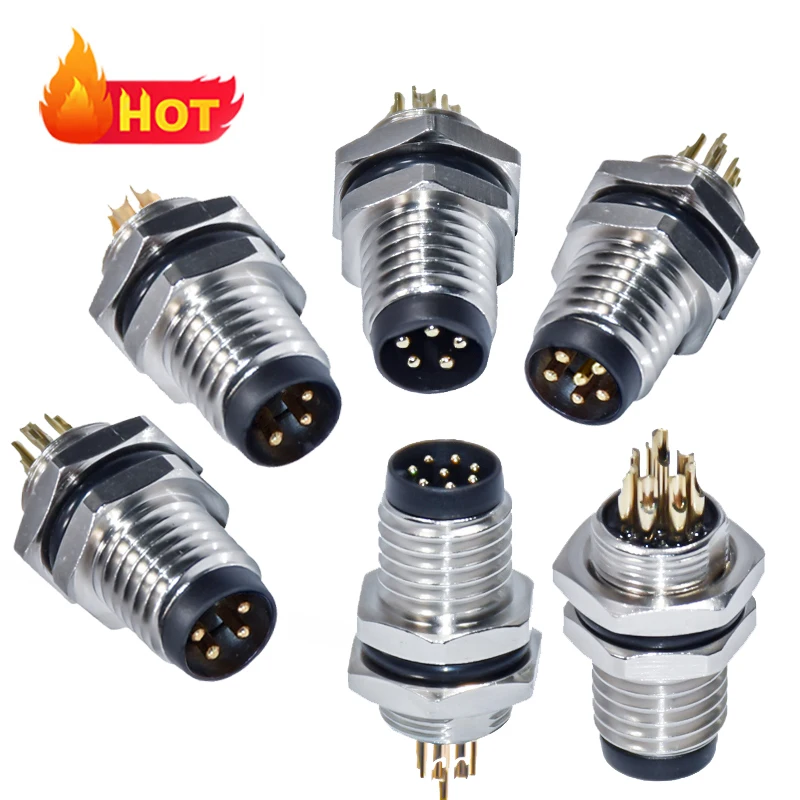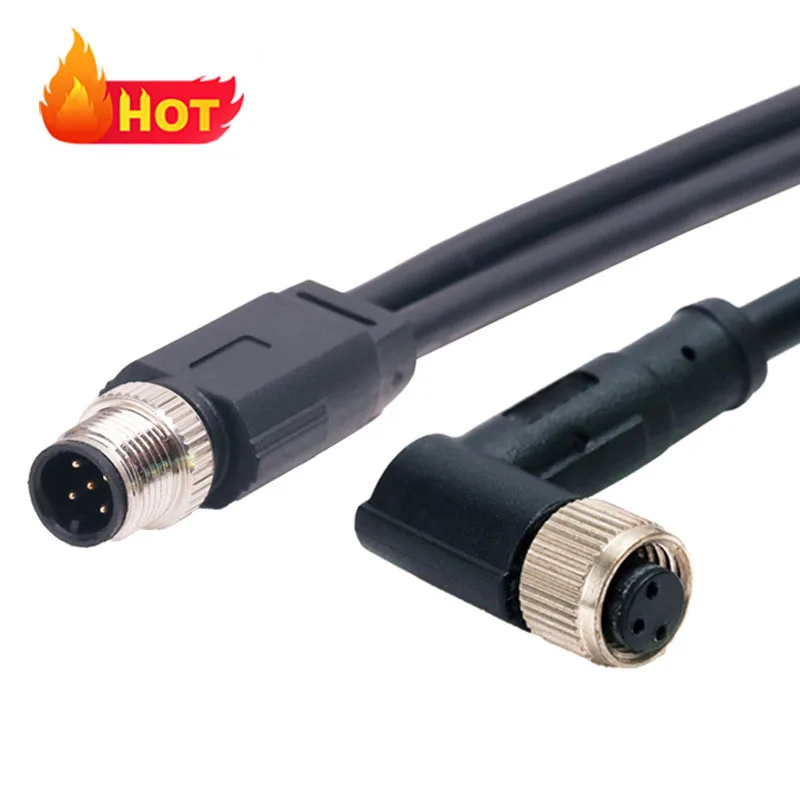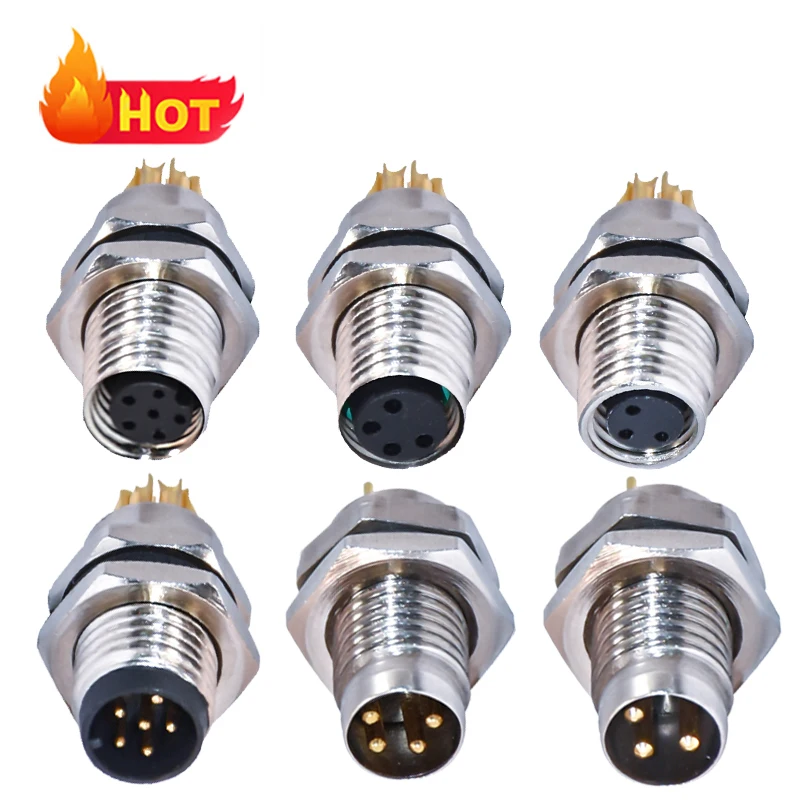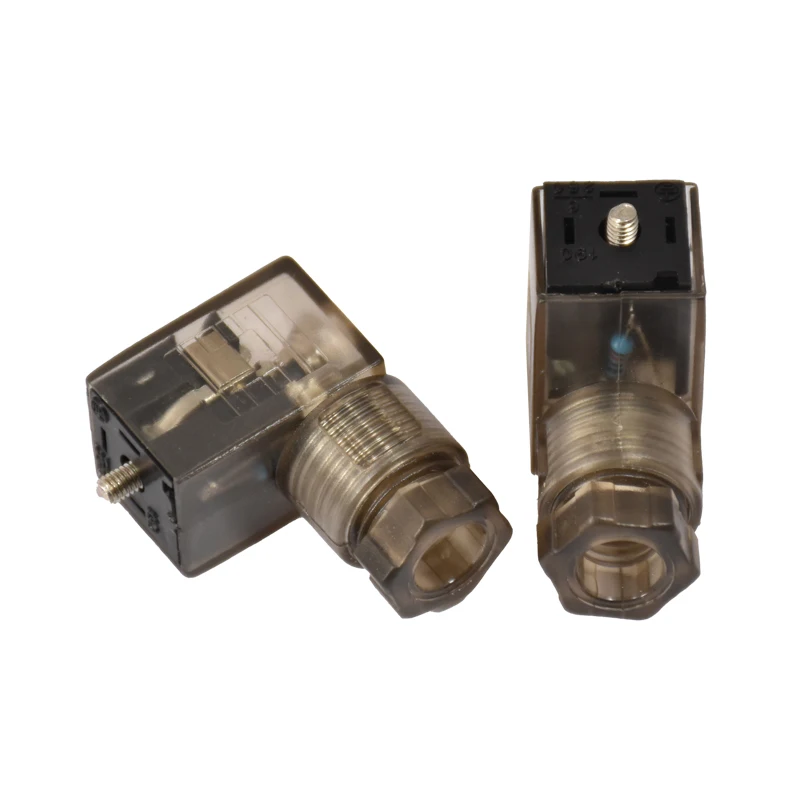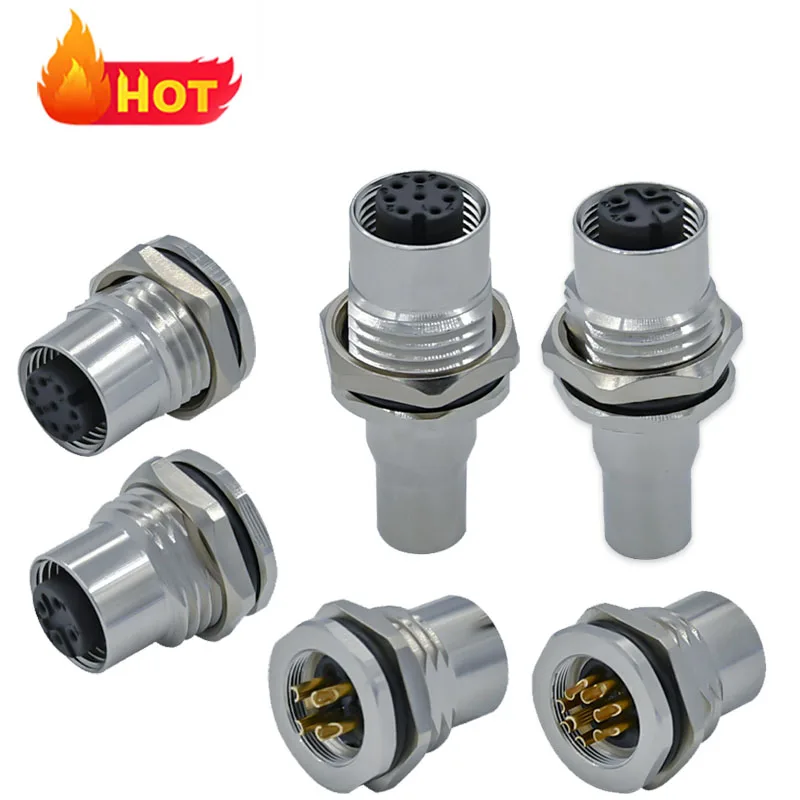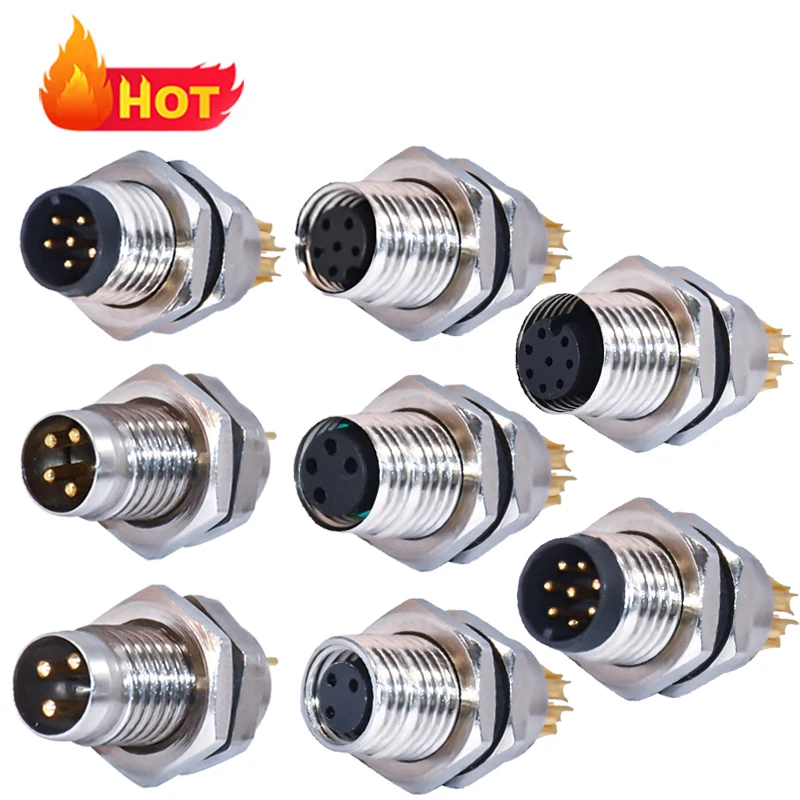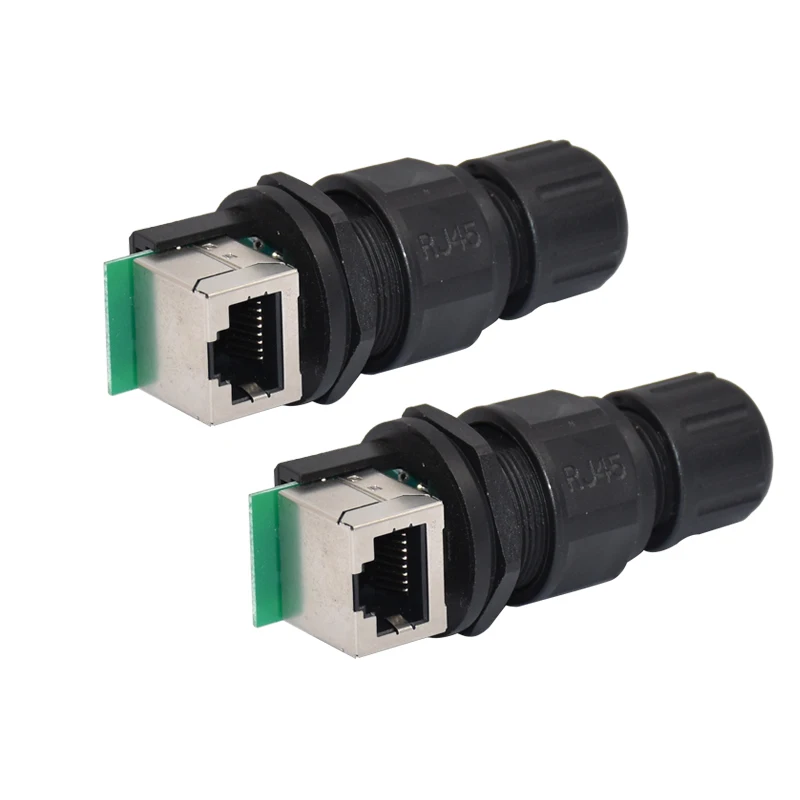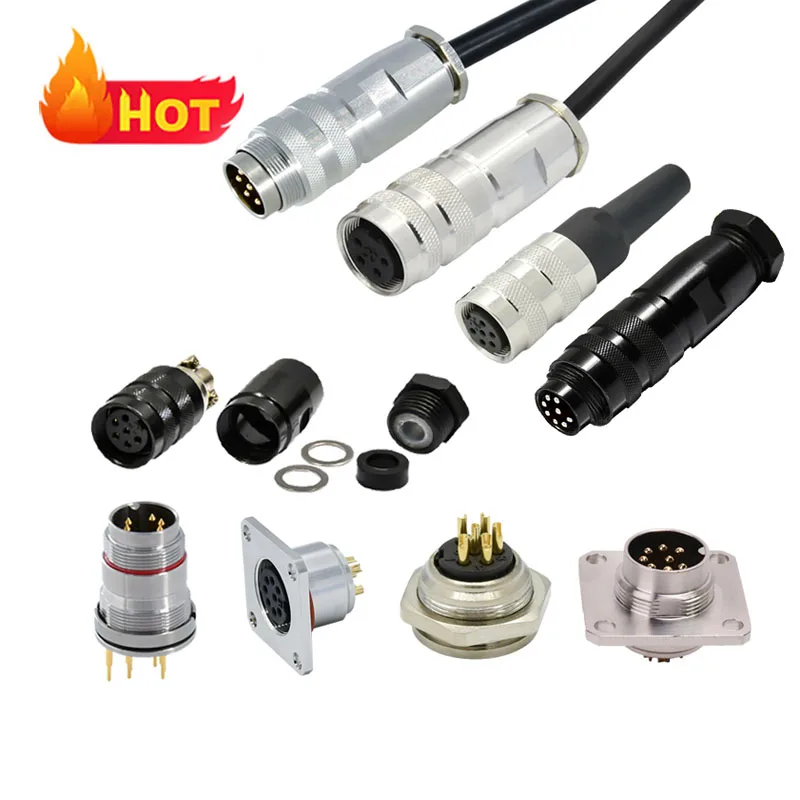A mágnesszelep-csatlakozók működésének feltárása
A mágnesszelep csatlakozók fontos részei a folyadékszabályozó rendszereknek, amelyek az ipari alkalmazások széles körében segítik a folyadék- és gázáramlás szabályozását. Ez a cikk megvizsgálja a mágnesszelep-csatlakozók tervezését, felhasználását és előnyeit, miközben a modern tervezésben és gyártásban betöltött jelentőségükre összpontosít.
A mágnesszelep-csatlakozók ismerete
A mágnesszelep-csatlakozók interfészként működnek a mágnesszelepek és a vezérlőrendszerek között, amelyek lehetővé teszik azok be- és kikapcsolását. Főleg öntött műanyag vagy fém házakból állnak, amelyek elektromos érintkezőket és kivezetéseket foglalnak magukba. Ennek a konstrukciónak a célja a megbízható elektromos csatlakozás garantálása, valamint a nedvesség, por, mechanikai igénybevétel és egyéb környezeti tényezők elleni védelem. Különböző méretek és konfigurációk léteznek ezekhez a mágnesszelep-csatlakozókhoz, így különböző típusú szelepekkel használhatók, így megfelelnek a különféle beépítési követelményeknek.
Használata az ipari automatizálásban
Az ipari automatizálási folyamatokban a mágnesszelep csatlakozók kulcsfontosságú elemei, amelyek segítenek szabályozni a folyadékok áramlását a folyadékkezelő rendszereken keresztül. Pneumatikus vagy hidraulikus rendszerekben alkalmazzák, amelyek hengereket, folyamatszelepeket működtetnek vagy nyomásszinteket szabályoznak. Ezek a szilárdan felépített kapcsolatok biztosítják a megszakítás nélküli működést nehéz körülmények között is, növelve a termelékenységet és a megbízhatóságot.
A folyadékszabályozó rendszerek előnyei
A beépített tervezési jellemzők mágnesszelep csatlakozók olyan képességeket tesz lehetővé, amelyek alkalmassá teszik őket folyadékszabályozási alkalmazásokhoz. Különösen a gyors és biztonságos csatlakozások megkönnyítésére fejlesztették ki őket, és csökkentik a karbantartási időt a szervizelés során. Ezen túlmenően támogatják a költséghatékony alkalmazásokat azáltal, hogy pontosságot biztosítanak, miközben beállítják az áramlási sebességet és a nyomást az üzemen belül, így optimalizálják az energiafogyasztást ilyen környezetben.
Integráció az autóipari és légtechnikai rendszerekbe
Ezeket a mágnesszelepeket széles körben használják az autóiparban, valamint a fűtési szellőztető légkondicionáló (HVAC) hálózatokban, ahol kezelik a hűtőfolyadékot, a hűtőközeget stb.. Például az üzemanyag-befecskendező emisszió-szabályozó eszközöket, a sebességváltó-hajtóműveket többek között ezek szabályozzák az autókhoz képest, miközben alkalmazásukat A hűtési szellőztetés és a fűtési technológia segít a levegő és a folyadékok áramlásának finomhangolásában, hogy fenntartsa az optimális hőmérsékleti feltételeket a háztartási kereskedelmi és ipari épületekben.
Technológiai fejlődés és jövőbeli trendek
A technológia fejlődésével a mágnesszelep-csatlakozók is fejlődtek, hogy megfeleljenek a feltörekvő alkalmazások igényeinek. Például a modernkori csatlakozókat fénykibocsátó dióda (LED) jelzőkkel látták el, így állapotfigyelőként, valamint integrált áramkörökként is használhatók a jobb vezérlési képességek vagy modularitás érdekében, így méretezhetőek és testreszabhatók. Ezek a trendek azt mutatják majd, hogy az IoT-alapú intelligens technológiákat integrálják a fluid rendszerekkel, lehetővé téve a távfelügyeletet és a távfelügyeletet, ezáltal nagyobb rendszerhatékonyságot és jobb előrejelző karbantartási képességet érnek el.
Következtetés
Különböző iparágakban a mágnesszelep-csatlakozók fontos szerepet játszanak a folyadékvezérlő rendszerekben, amelyek többek között megkönnyítik a folyadékcserét. Robusztus kialakításuk és sokoldalúságuk ideálissá teszi őket, azaz tartósak és kiváló teljesítményűek, ha ipari automatizálásról van szó, az autóknál, beleértve a HVAC-kat is. Idővel ezek a mágnesszelep-csatlakozók továbbra is azon erőfeszítések középpontjában állnak, amelyek célja a folyadékkezeléssel kapcsolatos folyamatok globális szintű hatékonyabbá tétele a technológiai fejlesztések kihasználásával.
Ajánlott termékek
Friss hírek
-
A csatlakozó technológia jövője
2024-01-05
-
Csatlakozók és a dolgok internete
2024-01-05
-
A csatlakozók hatása az autóiparra
2024-01-05
-
A csatlakozók szerepe az adatközpontokban
2024-01-05
-
A csatlakozó technológia fejlődése
2024-01-05

 EN
EN
 AR
AR
 BG
BG
 HR
HR
 CS
CS
 DA
DA
 NL
NL
 FI
FI
 FR
FR
 DE
DE
 EL
EL
 HI
HI
 IT
IT
 JA
JA
 KO
KO
 NEM
NEM
 PL
PL
 PT
PT
 RO
RO
 RU
RU
 ES
ES
 SV
SV
 TL
TL
 IW
IW
 ID
ID
 SR
SR
 SK
SK
 SL
SL
 UK
UK
 VI
VI
 ET
ET
 HU
HU
 TH
TH
 TR
TR
 FA
FA
 AF
AF
 GA
GA
 UR
UR
 PA
PA
 SI
SI

